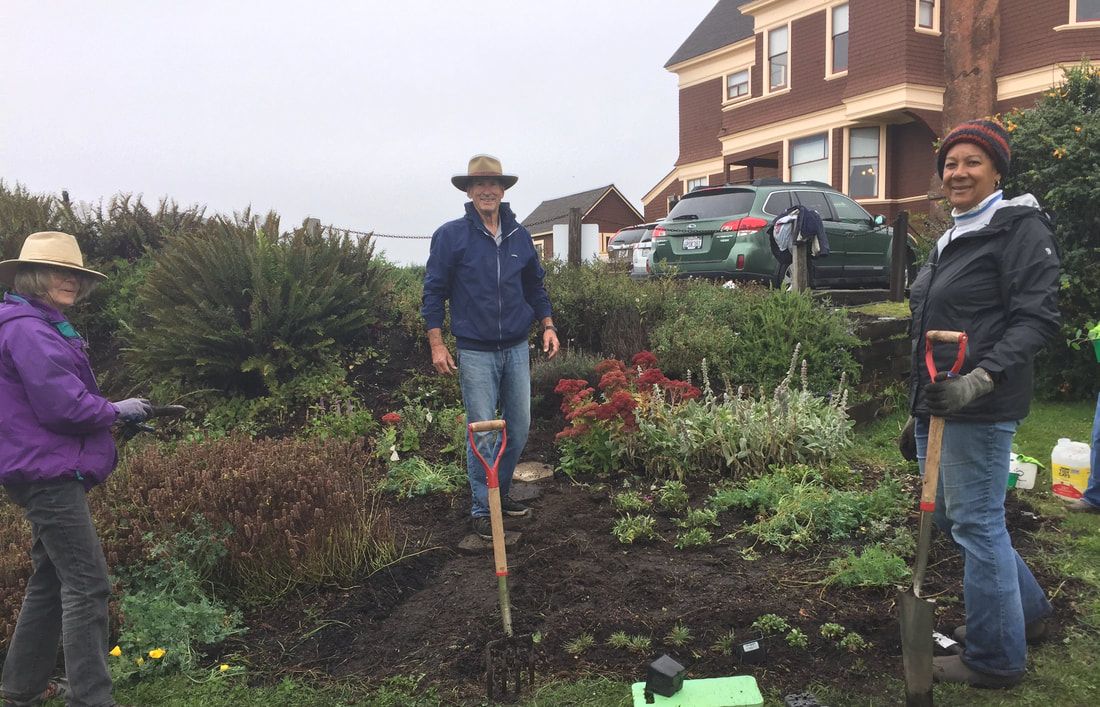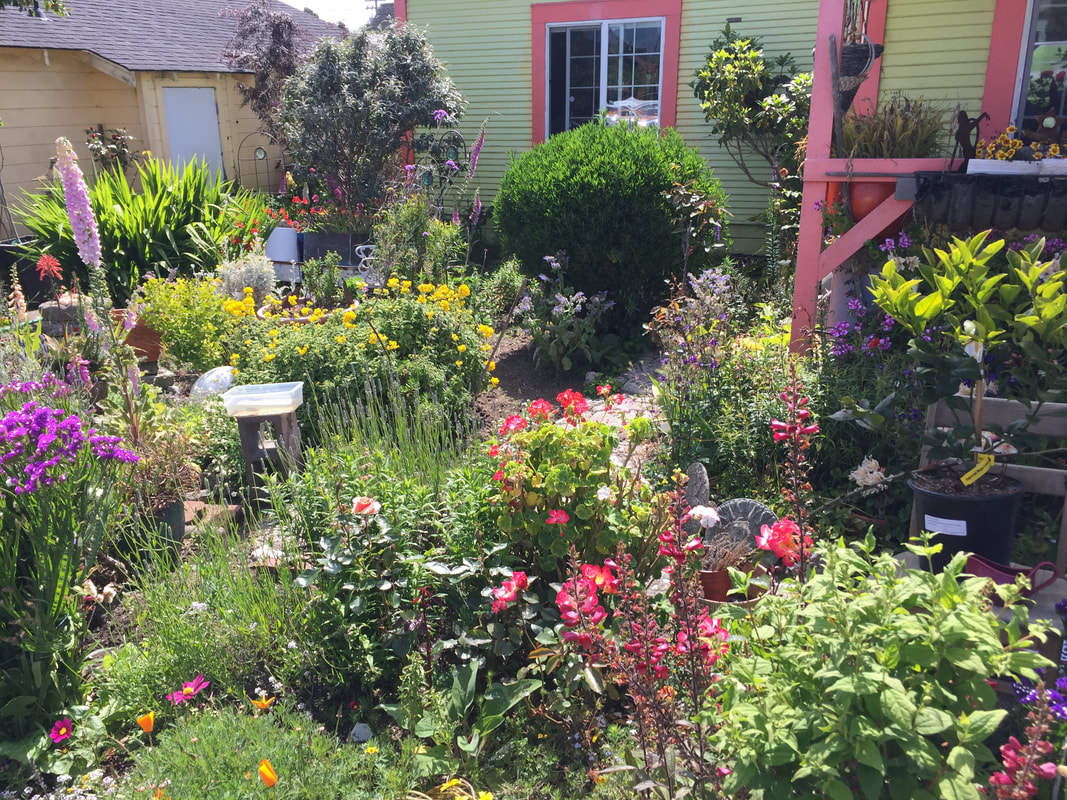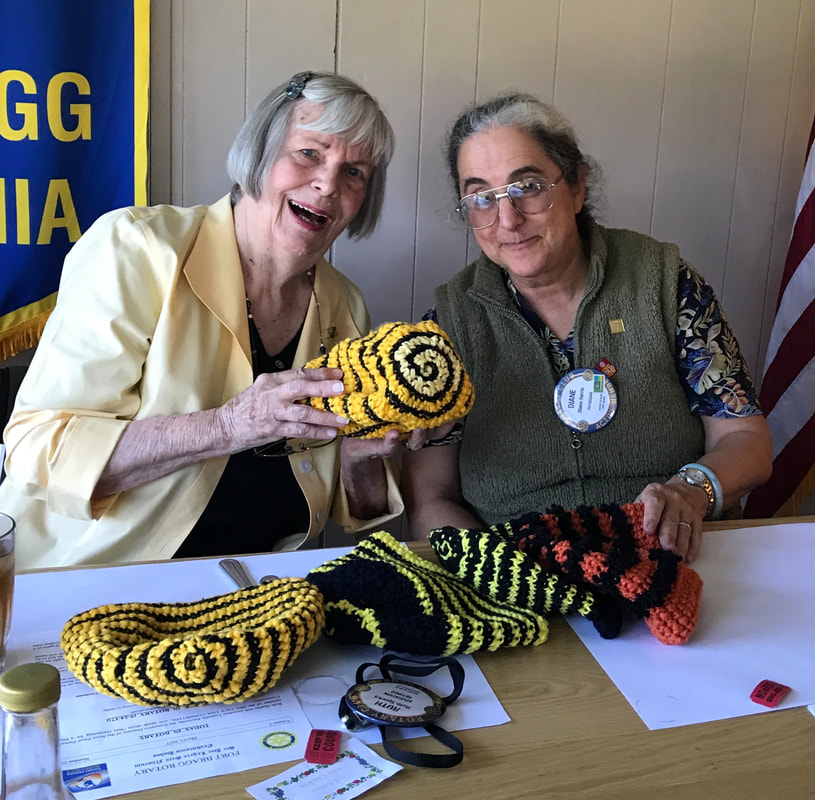In 2016, Fort Bragg became the first city in California to become certified as a Bee City USA affiliate. As a small city of 7,300 in a rural county, everything we know about being a successful Bee City USA, we learned in retrospect. Recognizing our successes and weaknesses has helped us improve our conservation efforts, and we hope that other Bee Cities and Bee Campuses may learn from our experience. Here’s what worked for us.
When writing the point above, I kept adding and subtracting “s” to the word goal. While narrowing your focus to a single goal may be a challenge, we have benefited from focusing on one clear goal that embodies identity, strength, and planned impact.
Rather than guiding our intentions from the start, our goal grew as we recognized the strengths of our small community. Gardening is a natural part of rural culture; our city and region are filled with knowledgeable gardeners and small organic farmers. Gardening has even infiltrated our schools, which are known for their award-winning garden programs. One of our first projects after becoming a Bee City was a bee garden in a downtown park.
We recognized that we can help pollinators best by fostering bee gardening. Today our goal is to ensure every garden is a Bee Garden.
You can learn about our approach, Pro-Pollinator Planting, on the new website we’ve developed with our partner Bee Bold Mendocino, the local nonprofit which originally proposed Fort Bragg become a Bee City USA.

The activities we organize are valuable, but the ones we inspire are the most effective.
Proud to be the first Bee City USA in California, the community pursued its own ideas about the meaning of Bee City USA. Civic organizations sponsored educational presentations, teachers incorporated pollinators into classes, the Fort Bragg Garden Club established an Annual Pollinator Garden Award, and the theme of the City’s recent 130th birthday party was Bee City USA.
Without anyone organizing it, opposition to pesticides grew. Citizens declared a Bee City must have pollinator friendly practices. Fort Bragg adopted an Integrated Pest Management policy in November, 2019.
Through our example we hope to inspire others to join in our goal of ensuring that every garden is a Bee Garden.

Yes, in-kind donations and volunteer labor are critical to getting started, but it requires money to get more done. We make fundraising fun-raising, with lots of people involved in projects of their own making.
A dedicated knitter created dozens of bee caps, which we sold for a price, and sometimes auctioned for more, or awarded for services rendered to pollinators. A boutique held a Bee Art Sale of works donated by the artists to benefit local pollinator programs. A middle-schooler donated money from flowers he sold at school for Mother’s Day. An interior design store features regular bee education events and serves and sells Thanksgiving Coffee Company’s Bee Bold Coffee, popular with locals because our bee projects have received a percentage of local sales since 2017.
Our budget is small, yet we manage to fund many small projects, scholarships, plants for our Bee City Garden, flyers for local gardeners, educational materials for schools, and displays for local organizations and events. The Cause Coffee program is now open to other Bee City USA and Bee Campus USA organizations to include in their fundraising programs.

And remember, every garden is a bee garden.




